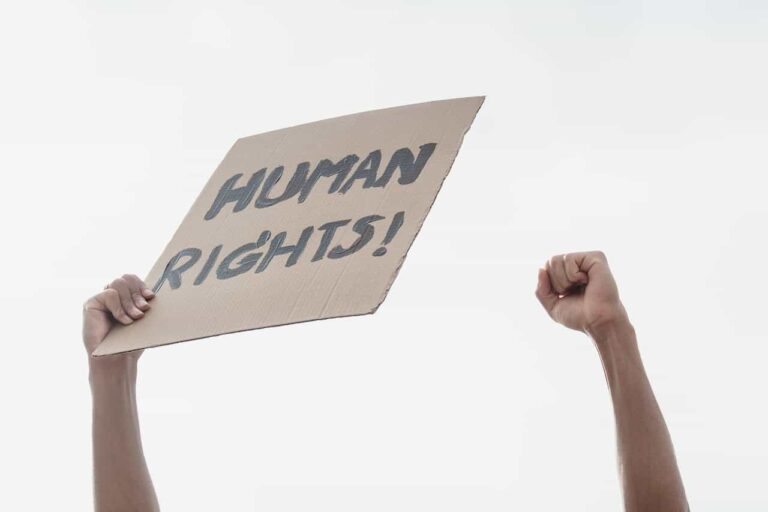Human rights serve as a pivotal element in ensuring fairness, parity, and respect for every individual. Regrettably, these rights are frequently violated, resulting in widespread anguish and injustice. In the face of such adversities, entities like Human Rights Watch (HRW) play a vital role in advocating for human rights and holding wrongdoers accountable.
Human Rights Watch comprises approximately 550 personnel from over 70 nationalities who diligently investigate and document transgressions transpiring across the globe. Their researchers operate on-site in more than 100 countries, unearthing facts that establish an indisputable record of human rights abuses.
Human Rights Watch stands as a founding member of the International Freedom of Expression Exchange, a global network of non-governmental organizations dedicated to monitoring censorship on a global scale.
Table of Contents
What is the function of the Human Rights Watch?
Human Rights Watch undertakes several crucial endeavors in pursuit of its mission:
Scrutinizing human rights violations
HRW conducts thorough examinations into human rights infringements transpiring in diverse regions and nations. Their devoted team of researchers and experts gathers evidence, conducts witness interviews, and collects data to acquire a comprehensive comprehension of these abuses.
Widely exposing the truth
Once HRW uncovers evidence of human rights violations, its objective is to illuminate these facts. Through reports, press releases, and media campaigns, HRW ensures global awareness of these violations, thereby intensifying the pressure for change.
Exerting pressure on the powerful to uphold rights and ensure justice
HRW utilizes its influence and esteemed reputation to apply pressure on governments, policymakers, and influential individuals. By strategically engaging in advocacy endeavors, HRW aims to foster respect for human rights, implement legal reforms, and establish accountability for those responsible for these violations.
Read more: Top and worst countries for human rights according to the Human Freedom Index
Mission and objectives of the Human Rights Watch
The mission and objectives of Human Rights Watch revolve around the safeguarding and advancement of human rights, the promotion of justice and accountability, the research and documentation of human rights violations, and the impact on policy formulation and international relations.
Safeguarding and promoting human rights
HRW tirelessly works to protect human rights on a global scale. By monitoring and documenting violations, HRW raises awareness and mobilizes support to safeguard the rights of vulnerable individuals and communities.
Advocacy for justice and accountability
HRW advocates for justice and accountability in cases of human rights abuses. Through targeted advocacy campaigns, it strives for legal and institutional reforms that address the underlying causes of these violations and ensure that perpetrators are held accountable.
Meticulous research and documentation of human rights violations
Thorough research and detailed documentation constitute the fundamental pillars of Human Rights Watch’s work. Through comprehensive investigations and the gathering of compelling evidence, Human Rights Watch produces reports that shine a light on violations of human rights, making them impossible to overlook.
Influence on policy-making and international relations
Human Rights Watch strives to exert influence on policy changes and shape international relations by providing policymakers, diplomats, and international organizations with accurate information and insightful analysis. The research and reports produced by Human Rights Watch serve as invaluable resources for decision-makers, leading to significant transformations in policies and practices.
Impact and achievements of the Human Rights Watch
Human Rights Watch (HRW) has left an indelible mark in the realm of human rights, making significant contributions to their safeguarding and advancement. Some noteworthy impacts and achievements include:
Raising awareness and garnering public support
Through extensive media outreach and awareness campaigns, HRW has effectively raised public consciousness regarding human rights violations. This increased awareness has mobilized individuals and communities to support HRW’s initiatives and contribute to the fight for justice.
Holding governments and non-state actors accountable
HRW’s investigations and reports have exposed human rights abuses committed by both governments and non-state actors. By shining a light on these violations, HRW has exerted pressure on perpetrators and contributed to the accountability of those responsible.
Collaborations with other human rights organizations
HRW actively collaborates with other human rights organizations worldwide. Through these partnerships, HRW strengthens its advocacy efforts, shares expertise, and contributes to a unified front in the battle against human rights abuses.
Future outlook and initiatives
Looking ahead, Human Rights Watch remains steadfast in addressing emerging human rights issues and priorities. HRW continues to monitor and respond to emerging human rights challenges. These challenges encompass issues such as the impact of climate change on human rights, digital rights, and privacy. HRW also focuses on the rights of marginalized communities and the protection of human rights defenders.
HRW acknowledges the growing intersection between technology and human rights. It actively investigates and raises awareness about issues such as surveillance, online censorship, and the ethical implications of emerging technologies.
Read more: Women rights, these are the best and worst countries in the world to be a woman












